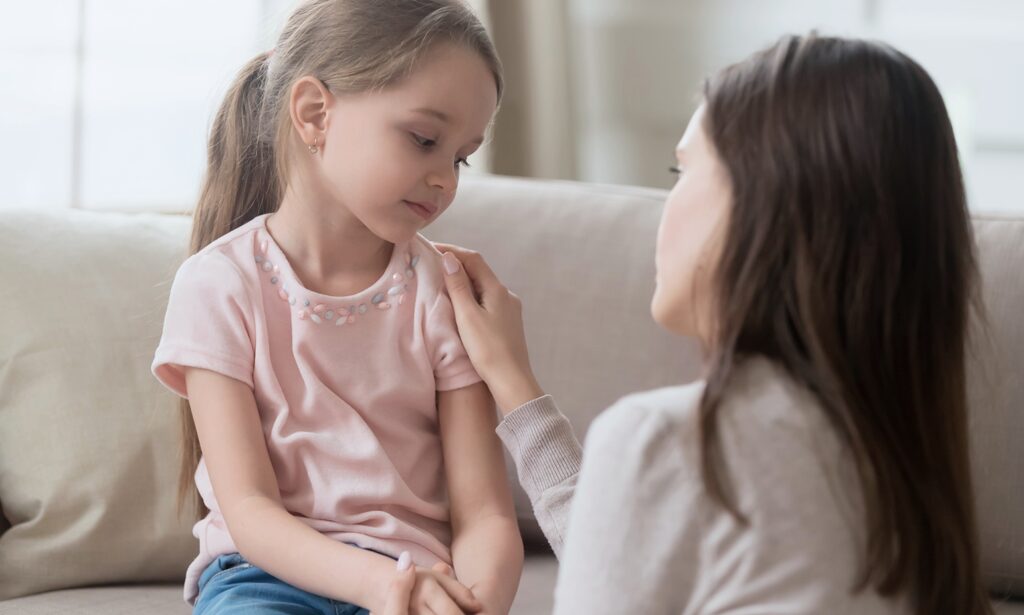The Emotional Impact of Trauma on Children

Going through a traumatic event is extremely difficult for anyone, but it’s even more difficult for children. They still don’t have as many management resources as adults. Because they are vulnerable and dependent, the impact can be greater and more lasting. Sustainable for them. The impact of trauma on children shatters their sense of security and well-being in their lives. So they need support to overcome it. Childhood is a time when we need to feel loved, safe and protected.
It is during these years that our trust in others and in life is forged, and a major setback can shatter all of those foundations. As a result, uncertainty, fear and anxiety can take root in the child’s life and their reactions and behaviors may not be the most appropriate, as they arise on the basis of this event that changed everything.
What is trauma in children?
When we speak of trauma, we are referring to an event experienced with great fear (or) distress because we felt it might threaten our physical (or) psychological integrity. In other words, it is a negative experience that is felt with great intensity, felt very threatening and in the face of which we feel that we do not have the necessary resources to face it. Therefore, we can speak of experienced natural disasters, attacks, accidents (or) mistreatment; but also of apparently less dramatic situations. Trauma is shaped not so much by the event itself as by the way the person experiences it.
For example, a child who has been abandoned by their parents, witnessed struggles in the family environment (or) suffered separation from their main characters may experience this as trauma. The severity of emotional distress depends on several factors, including the child’s age, their own personality and the coping resources available to them. But we also know that the impact is greater when the negative situation is repeated, persistent (or) when the child does not have a social support network.
The Emotional Effects of Trauma on Children
Trauma affects Children in many different ways. When experiencing a negative and threatening situation, the brain ensures that the memory is not forgotten and that the initially triggered strong fight-and-flight reaction can persist later. Therefore, these are some of the main consequences that the child may experience:
constant alertness: Hypervigilance occurs, a tendency to be constantly alert and aware of one’s surroundings. They do this to prevent future negative situations. The child seems unable to remain calm, accompanies every external stimulus with fear.
Need for control: Control gives us a sense of calm and that’s when children need most to feel that their world is predictable. Because of this, they may find it difficult to cope with change and overreact when it occurs.
Inappropriate responses: Certain situations (or) stimuli can trigger inappropriate responses. There are certain places, people, sounds, smells (or) sensations that evoke the trauma and, when they appear, trigger those panic and defensive reactions again. Children typically try to avoid these triggers, but may respond with tantrums (or) aggression when they occur.
Difficulty Dealing With Emotions: There are major difficulties in dealing with overwhelming emotions. Great sadness and apathy (or) emotional blocks may occur, meaning the child may feel emotionally paralyzed. Also, you may tend to isolate yourself.
Having nightmares: It is very common for the child to relive (or) relive the event through flashbacks, nightmares, mental images (or) highly distressing memories.
Treatment and Intervention
The impact of trauma on children often triggers an acute stress disorder. This is a condition that includes the above symptoms, occurs immediately after the event and lasts from three days to a month. In other cases, post-traumatic stress disorder can develop. When a child experiences trauma, they need adult support to overcome the experience and its aftermath.
The best thing you can do for them is offer them stability and predictability, with routines that are respected and love that’s always available. Allowing them to choose certain aspects of their daily lives (such as deciding what to eat or how to dress) also gives them the sense of control they need. But above all, it is important to have patience and work on emotional expression. The child must learn to express and channel their feelings. The professional help of is extremely important to prevent the effects of the trauma from being prolonged.





Nice article!! Thanks millions.
I wish society saw how important it is to raise and love children. They are literally the next generation of humanity.
Totally support
Thanks
Thank you.
🍀🕊️
why
APPRECIATE.
Thanks💓
Click
@@@
Thanks✌️🍀
okay
Was
Children = our future.
Thank